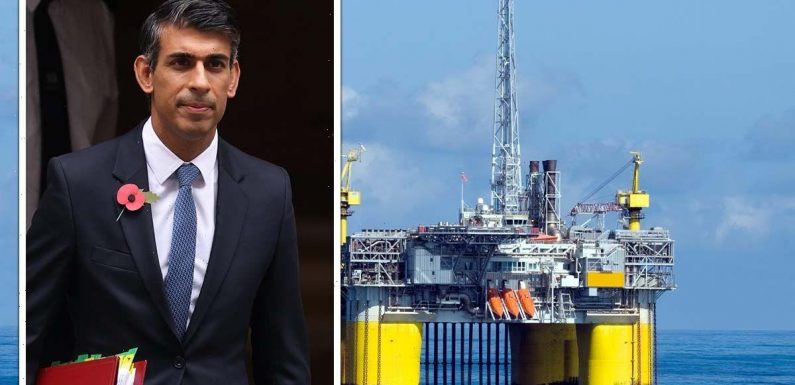
BP expects to pay windfall tax after posting massive profits
We use your sign-up to provide content in ways you’ve consented to and to improve our understanding of you. This may include adverts from us and 3rd parties based on our understanding. You can unsubscribe at any time. More info
Harbour Energy, the UK’s largest oil and gas producer has warned against Prime Minister Rishi Sunak’s plan to issue a windfall tax on energy companies. The North Sea energy giant warned that the North Sea windfall tax has led to its shareholders urging the company to invest its money elsewhere. The company warned the Government against any further increase in the energy profits levy introduced by Mr Sunak in May, back when he was the UK’s Chancellor. They said that any changes could jeopardise its planned investments in the UK, and revealed that the company expects to pay $400million (£358million) in windfall tax this year, taking its total tax bill in the UK to $900million (£806million).
In May, Mr Sunak issued a 25 percent windfall levy, which increased the effective tax rate for North Sea companies from 40 to 65 percent, adding that the tax would remain until 2025 unless oil and gas prices returned to normal levels.
Now in a bid to fill a £50billion deficit in the UK public finances, Mr Sunak and Chancellor Jeremy Hunt are aiming to raise the tax rate to 30 percent, and keep in place until 2028, the Times reported.
Linda Cook, Harbour’s chief executive said: “The recently enacted UK energy profits levy [EPL] and speculation about further fiscal changes have created uncertainty for independent oil and gas companies like Harbour.
“As a result, evaluating expected returns from long-term investments has become more difficult and investors are advocating for geographic diversification.”


Within the first nine months of 2022, Harbour Energy produced 194,000 barrels of oil equivalent per day in the North Sea, making it the UK’s largest producer.
The company is now looking to develop new projects in Mexico and Indonesia and is also reportedly looking to expand in Southeast Asia and the Gulf of Mexico.
In the UK, Harbour has interest in two proposed carbon capture and storage (CCS) projects, accounting for billions of pounds of investment.
Ms Cook added: “While we fully recognise the significant challenge in the UK to put public finances on a sustainable footing, we urge the government to carefully consider the consequences of any increase in or extension of the EPL.

“At a time when oil and gas producers are being asked to invest more to help ensure the UK’s energy security and are considering longer-term, material investments in CCS, additional taxes would run the risk of undermining our ability to do either.”
In just the first half of the year, Harbour’s profits had jumped by over tenfold to $1.5billion (£1.3billion).
The company has fiercely opposed windfall taxes, arguing that they were not enjoying the same record profits from high market prices as other big North Sea producers because it has in effect pre-sold it’s oil and gas at lower prices.
Harbour said that it had sold its oil for an average price of $80 per barrel (£71.7), significantly lower than the average Brent crude price of $105 per barrel (£94). It also sold gas supplies at 86p per therm, as opposed to the average price of 209p per therm.
DON’T MISS:
EDF unveils blackout lifeline with energy ‘Superhub’ to power 100,000 [REVEAL]
Nuclear armageddon warning: BILLIONS to be wiped off Earth [REPORT]
One thing Bulb customers should do before energy company is taken over [INSIGHT]


Meanwhile. fury has exploded after oil giant BP posted revealed profits more than doubled for the most recent quarter as prices for motorists at the petrol pumps remain incredibly high.
The London-listed company reported massive underlying profits of £7.1billion for the three months to September – a jump from the £2.9billion figure posted for the same period in 2021.
The eye-watering number was also significantly ahead of the £5.3billion expected by many leading market analysts, but BP said profits were lower than the previous quarter after a dip in the average oil price.
Last week, rival Shell said its adjusted earnings more than doubled to £8.2billion over its latest quarter as gas prices remained high.
Alok Sharma, president of the COP26 climate conference, and the Labour Party, have both urged the Government to go further in taxing major oil companies.
Source: Read Full Article